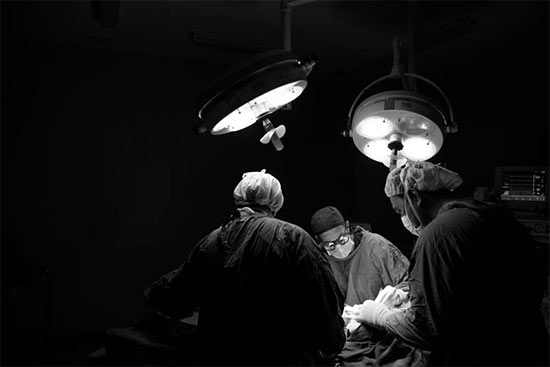Wound Scar Management Brighton, Melbourne
Plastic surgeons are experts in dealing with all types of wounds.
Mr David Morgan works with patients to help reduce the signs of scars and wounds. Wounds can result from surgery, accidents, or as a consequence of a long-standing disease or disability. By promoting rapid and effective healing we are able to maximise the cosmetic result of your wound, and allow you to return to your normal daily life as soon as possible. This is particularly important for post-operative wounds, and for wounds in cosmetically sensitive areas, such as the face.

Apart from expert wound-care, several other factors can influence the outcome of your wound. Maintaining a healthy diet and lifestyle will ensure that all the necessary building blocks for wound repair are present. Keeping fit and undertaking regular exercise will improve the circulation and allow a healthy blood flow to the healing area, improving wound healing.
Cigarettes contain many substances that are detrimental to wound healing and to your general health and you should stop smoking where possible. Most elective plastic surgery procedures will not be undertaken until you have quit smoking because of the high risk of complications during your anaesthesia and in the post-operative period.
Many wounds will benefit from a period of rest or immobilisation and you should follow the advice of your doctor in this regard. Wounds on the legs are usually slower to heal than wounds on the upper part of the body because of the fluid accumulation that can occur. Compression stockings or bandaging will be recommended in these instances to speed-up wound healing.
Once your wound has healed you will be given advice on how to look after your scar to achieve the best possible result. This may include taping of the scars and/or gentle massage to the area to soften the scars more quickly. Scars in sun-exposed areas need to be protected from the sun for up to three months to prevent them from becoming permanently pigmented.
Different types of scars
Widespread scars are scars that stretch sideways over time and usually occur on the back, breast, or abdomen. This is due to the thickness of the skin in these areas, the time they take to strengthen, and the constant motion to which they are subjected.
Hypertrophic scars are thick, red scars that develop in the first few months. These will often improve with time and massage, but they can sometimes require additional treatment to achieve an acceptable final result. This may include some form of pressure therapy, application of silicon gel sheeting, or in some instances the injection of a steroid solution in order to soften and flatten the scar. Laser therapy can also be used to reduce the redness in the scar. Sometimes a surgical scar revision is required to achieve a desirable result.
Keloid scars are a severe form of hypertrophic scarring in which the area of abnormal scar formation extends beyond the bounds of the original wound. These are uncommon, but can be very difficult to treat. They will often recur after a scar revision.
Ultimately, the final appearance of a scar is largely determined by your individual genetic make-up and its anatomical location, with minor contributions to the result from the surgical technique and post-operative care. Although previous scars can be used as a guide to judge the final appearance of a surgical scar, different areas of the body can heal differently and the possibility of a scar should always be considered when deciding to undergo a surgical procedure.
All surgical procedures carry risks.
Before proceeding, you should seek a second opinion from an appropriately qualified health practitioner.
Cosmetic surgery is real surgery, and will most often require a general anaesthetic. All surgery will require a period of recovery before returning to normal activity. Although uncommon, complications can and do occur, and may affect the final result of your surgery. The potential risks will be discussed fully during your consultations, and you will have the opportunity to ask questions about the various risks in your particular circumstance. Risks may include poor quality scarring, excessive bruising and swelling, infection, bleeding, pain, asymmetry, nerve injury, anaesthetic complications, unsatisfactory cosmetic outcomes, the need for further surgery, and permanent disability or death.
As a Specialist Plastic Surgeon, Mr Morgan is appropriately trained and qualified to deal with complications of surgery, including the ability to admit you to hospital, if required.
